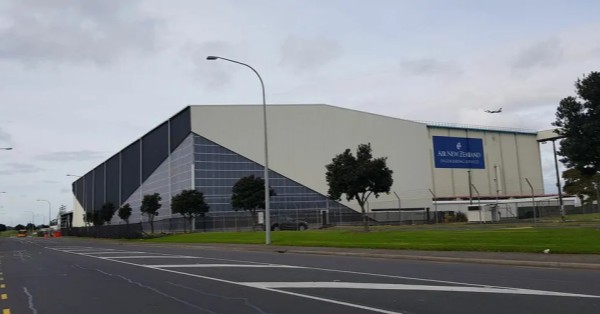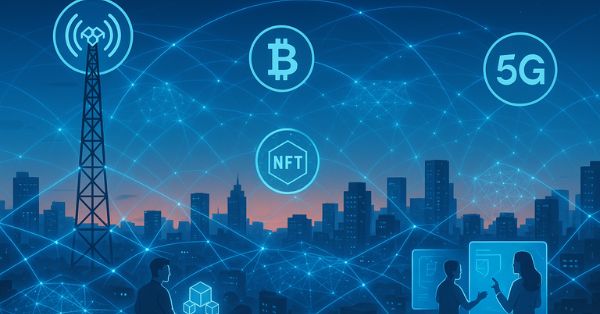The FCC has approved two major transactions involving T-Mobile, allowing the wireless carrier to significantly expand its footprint across both mobile and broadband markets. The regulatory clearance follows the company’s recent decision to terminate its diversity, equity, and inclusion (DEI) initiatives—a move many view as politically aligned with the Trump administration’s ongoing rollback of such programs.
T-Mobile Acquires UScellular’s Wireless Operations for $4.4 Billion
T-Mobile’s first approved deal involves the $4.4 billion acquisition of regional carrier UScellular. This includes the transfer of most of UScellular’s wireless subscribers, its retail locations, and roughly 30% of its spectrum assets. The transaction enhances T-Mobile’s 5G coverage, particularly in rural markets where UScellular had historically maintained a strong presence.
The U.S. Department of Justice (DOJ) cleared the merger one day before the FCC’s approval. In a public statement, Assistant Attorney General Gail Slater acknowledged that while the merger raised concerns around further consolidation among the “Big Three” carriers—T-Mobile, Verizon, and AT&T—UScellular was struggling to remain competitive. Slater cited the regional operator’s inability to keep up with the escalating capital demands of modern wireless networks.
“Consumers would benefit from a stronger T-Mobile,” said Slater. “UScellular simply could not keep up with the scale and investment needed to maintain network quality.”
DOJ Raises Caution Over Market Consolidation and Spectrum Aggregation
Although DOJ opted not to block the merger, the agency highlighted growing risks from spectrum consolidation. T-Mobile’s acquisition brings more spectrum under the control of the Big Three, who now dominate over 80% of the mobile wireless spectrum and more than 90% of the 335 million U.S. mobile subscriptions.
This further limits the competitive landscape, especially for any potential fourth carrier. The DOJ warned that continued spectrum aggregation may prevent new entrants from gaining a foothold, undermining consumer choice and price competition.
“Spectrum is a national resource that belongs to the American people,” Slater noted. “Excessive concentration of this resource threatens future competition.”
Metronet Fiber Deal Expands T-Mobile’s Fixed Broadband Ambitions
In a separate transaction, the FCC also approved T-Mobile’s acquisition of a 50% stake in Metronet, a fiber broadband provider that reaches more than 2 million homes and businesses across 17 states. The stake was acquired through a joint venture with private equity firm KKR.
This move signals T-Mobile’s increased focus on the fixed broadband market, particularly through its Fixed Wireless Access (FWA) strategy. According to the FCC, the deal will generate “substantial public interest benefits,” particularly in underserved areas where broadband access has lagged.
“These network deployment synergies will yield significant public interest benefit,” the FCC stated, adding that the merger would boost broadband speeds and coverage, especially in rural communities.
Despite these potential gains, analysts remain skeptical of the fiber strategy’s broader impact. Blair Levin of New Street Research commented that unless T-Mobile acquires larger assets such as Charter or Comcast, the Metronet deal may lack the scale needed to shift T-Mobile’s position in the wired broadband market.
Elimination of DEI Programs and Regulatory Timing
T-Mobile’s DEI rollback occurred just prior to the FCC’s decision. In a letter to FCC Commissioner Brendan Carr, T-Mobile stated it was terminating all DEI-related policies “not just in name, but in substance.” The move aligns with President Donald Trump’s January 2025 executive order that dismantled DEI initiatives across federal agencies and encouraged similar shifts in the private sector.
While the FCC did not link its decision directly to T-Mobile’s DEI policy changes, the timing has raised questions about political influence in regulatory approvals.
Regulatory Landscape and the Future of Competition
The T-Mobile-UScellular merger marks another chapter in the long trend of consolidation in the U.S. wireless industry. DOJ officials stressed that while they would not oppose the deal, they remain cautious about its implications. Slater underscored that the U.S. market is now effectively an oligopoly dominated by three national carriers, leaving little room for emerging players like Dish Network—now operating under the EchoStar brand—to compete.
“This review makes clear we stand at a pivotal moment for the wireless industry,” said Slater. “The long-term impact of such consolidation warrants close monitoring.”
Levin echoed that view, suggesting Dish may ultimately sell off its spectrum to the Big Three due to operational and financial constraints. The DOJ has no direct control over such transactions, leaving it up to the FCC to determine whether future deals merit scrutiny.
Broader FCC Policy and Satellite Market Approvals
In the same week, the FCC also approved a separate license transfer tied to satellite operator SES acquiring rival Intelsat. Together, these decisions align with the FCC’s “Build America Agenda,” aimed at increasing private investment and accelerating digital infrastructure deployments across mobile, fixed, and satellite networks.
“The FCC’s decisions this week further all of these goals while cutting across multiple sectors of the communications market,” the agency said in a joint statement.
Conclusion: A Stronger but More Concentrated Wireless Market
With both DOJ and FCC approvals in hand, T-Mobile is now set to finalize its acquisition of UScellular and expand its broadband reach through Metronet. While the moves promise immediate benefits in terms of coverage and network efficiency, they also raise long-term questions about competition, spectrum equity, and consumer choice in a market increasingly dominated by a few powerful players.
As the wireless industry approaches a critical inflection point, regulators and consumers alike will be watching closely to see whether consolidation leads to innovation—or merely higher prices and reduced options.




























